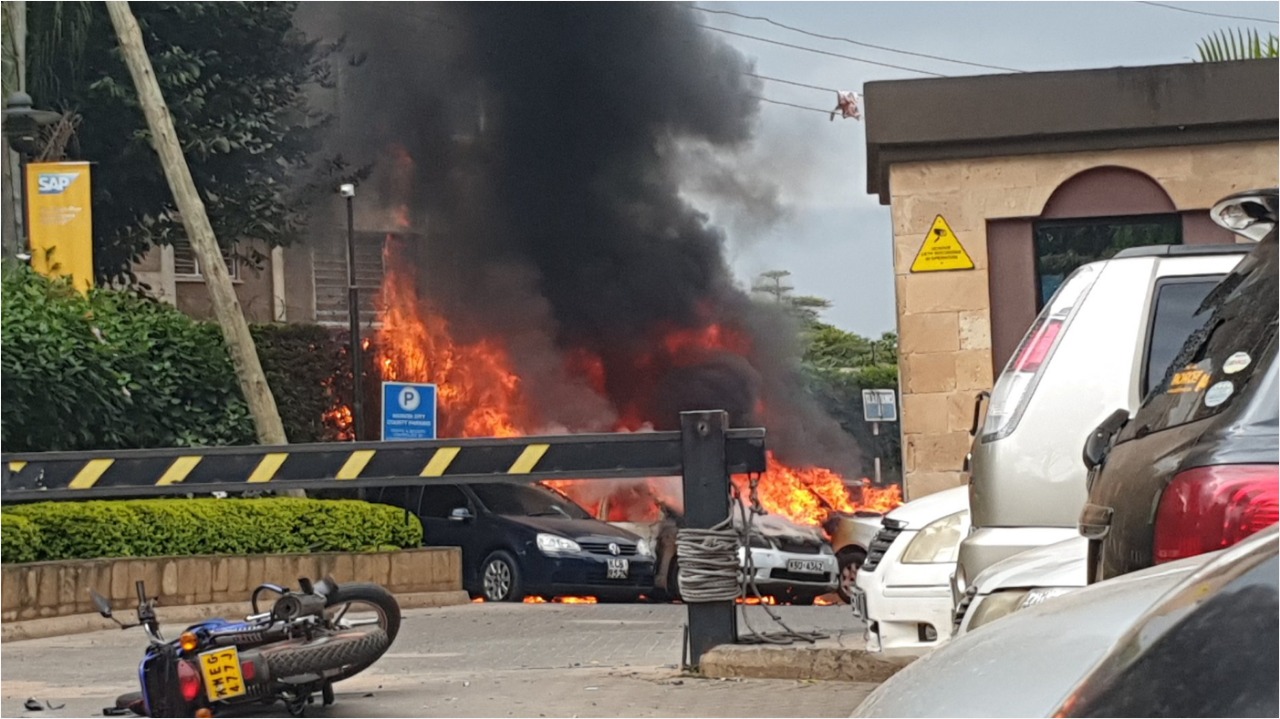advertisement
Leaders express solidarity with Kenya while condemning terror attack in Nairobi
Leaders from across all walks have expressed solidarity while strongly condemning terrorist attack meted on innocent souls at the Kenya’s…

Leaders from across all walks have expressed solidarity while strongly condemning terrorist attack meted on innocent souls at the Kenya’s 14 Riverside Drive upmarket building complex in Nairobi that houses DusitD2 Hotel, I&M Bank and tech firms; LG, SAP and Cellulant among other offices.
The United States, Britain, China, Germany and South Africa were among the first countries to send in their support messages following the attack that heavily armed four terrorists neutralized by Kenya’s security forces.
While confirming the loss of 14 in his first address to the nation since the heinous incident, Uhuru Kenyatta, Kenya’s President was categorical that the government was all out to deal with acts of terror even more decisively.
advertisement
“The security operation at Dusit complex is over and all the terrorists have been eliminated. We have confirmation that 14 innocent lives were lost through the hands of these murderous terrorists with others injured,” said Kenyatta.
Police confirmed the coordinated assault happened after 3 pm local time started at the I&M Bank, followed by an explosion that targeted three vehicles in the complexes parking lot, trailed by a suicide explosion in the foyer of Dusit hotel where a number of guests suffered injuries. The inspector general of police Joseph Boinnet confirmed there were injuries.
In separate statements, the leaders said they stand in solidarity with all Kenyans. Robert Godec, the outgoing US Ambassador to Kenya tweeted: “We commend the courage of the Kenyan security services actively working to end the attack,” Mr Godec tweeted and stated that the high commission was in close communication with Kenyan authorities.
advertisement
“The United States condemns in the strongest terms the terrible attack at the DusitD2 Hotel complex in Nairobi. We offer our deepest condolences to those who have been affected by this horrifying violence.”
“On behalf of the government and the people of South Africa, we send a message of support to the government and the people of Kenya,” a statement from Khusela Diko, Spokesperson to the President said on Wednesday.
Technology which seem to have aided the coordinated attack, equally played a vital role in countering the terrorists. Victims caught up in the fray relayed encrypted messages to their loved ones who were in constant communication with the Kenyan security forces.
advertisement
in 2015, the the US President Barack Obama sought the help of tech companies to combat terror threats, which he described as entering a new phase.
Granted that his remarks were squarely purposed to tame terror, it also put into sharp focus the demand by law enforcement agencies for tech companies to provide ways for the government to be able to access encrypted communications.
In an address late Sunday from the Oval Office, Obama said he “would urge hi-tech and law enforcement leaders to make it harder for terrorists to use technology to escape from justice.”
The address came after two attackers, Syed Rizwan Farook and his wife Tashfeen Malik, killed 14 people and injured another 21 in a gun attack in a social service center in San Bernardino, California.
In an effort to enhance security, a number of security experts and chief information officers expressed the need to have their Closed Circuit TVs connected to multi-agency security forces in future. The top security a agencies are also grappling with proposal advocating for stronger key disclosure laws, which compel suspects to surrender their passwords.
However, in many cases, the attackers are deceased. Others have called for telecommunication companies to build back-doors into their products, which would give law enforcement a way to access encrypted data. Although methods for Virtual Private Network (VPN) blocking exist, VPNs remain largely unregulated internationally.
These policy options attempt to disrupt the technology’s distribution but do little to undermine the technology itself. In other words, VPNs and encryption can exist without VPN and encrypted messaging providers – especially in the context of illicit activity. As a result, policymakers have a chance to deliberate into ways of making contributions that would combat the threat.
More promising approaches involve placing a renewed emphasis on defensive counter-terrorism measures. While continuing to work to prevent attacks, law enforcement should also explore new ways to mitigate attacks’ effectiveness. Examples of this thinking have begun to emerge in Europe, where new barriers will limit the impact of vehicular ramming.